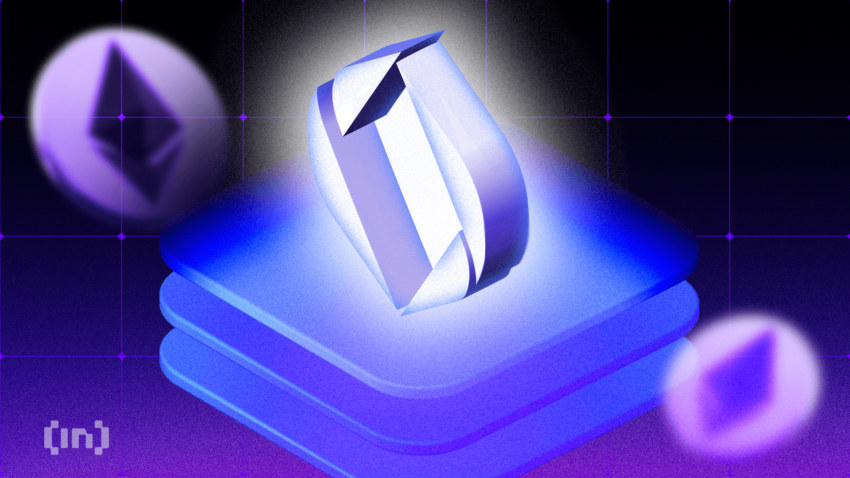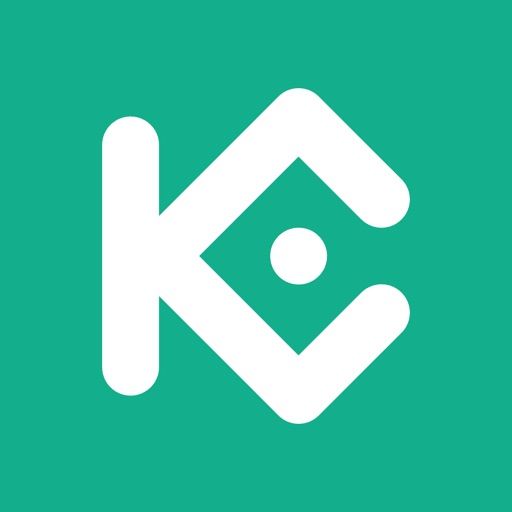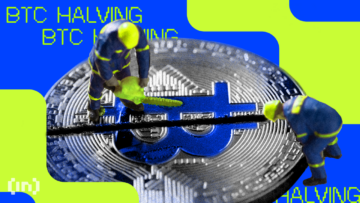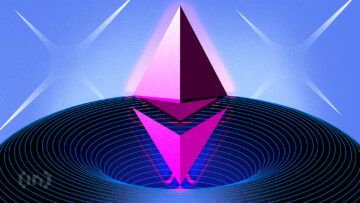Since its launch, Ethereum has undergone several network upgrades to address scalability, efficiency, and security. These upgrades are usually hard forks that focus on specific parts of the blockchain. The Ethereum Cancun-Deneb Upgrade, also known as Dencun, is the next significant upgrade to the world’s second-largest blockchain.
Dencun marks a significant milestone for the network as it improves throughput and reduces transaction costs, benefiting the network’s growing number of layer-2 chains. Read on to learn more about this major upgrade and its impact on Ethereum’s future.
- How to take advantage of the Dencun upgrade
- Kraken
- OKX
- Wirex
- Coinbase
- KuCoin
- What is the Ethereum Cancun-Deneb (Dencun) upgrade?
- When is Ethereum Cancun going live?
- Ethereum Dencun EIPs explained
- Benefits of Ethereum Cancun
- Risks of Ethereum Cancun
- Ethereum’s Dencun upgrade and its potential impact on validators
- The Denub upgrade: Set to fortify the Ethereum ecosystem
- Frequently asked questions
Methodology
Our methodology for selecting the platforms to purchase ETH was exhaustive, with platform testing conducted over a period of six months. Many factors are taken into consideration for selecting these platforms. Some of these include fees, features and products, availability, and security among other factors.
Fees
Both Kraken and KuCoin boast some of the lowest fees in the industry, offering both maker and taker fees between 0.1-0.3%. Thereafter regressing to much lower fees when you increase your 30-day trading volume. Wirex also has low trading fees, offering a €0 per month account.
Features and products
Platforms such as OKX and Coinbase offer a vast suite of products that suit a diverse set of users. Coinbase has a custodial service, commerce support, wallet, blockchain, staking, and more. OKX also has a proprietary blockchain, derivatives trading, mining pools and more.
Availability
All of the mentioned exchanges service countries in more than 100 countries. There are exceptions of U.S. sanctioned nations. However Kucoin ranks the highest, supporting about 200 countries.
Security
Security can cover a few different areas. However, in crypto it usually falls along the lines of proof of reserves, cold storage, regulation, or insurance. In this realm, OKX and KuCoin both provide proof of reserves and insurance funds, while Kraken, Coinbase, and Wirex are regulated by relevant governing bodies.
There are a few other factors to consider such as fiat currency support and payment methods. Some of the payment methods include:
• Crypto
• Bank transfer
• Apple/Google Pay
• Debit/credit
While many exchanges do not support all methods mentioned, it is important to note, as geography may influence the supported methods and user experience.
This methodology was peer-reviewed and fact-checked to ensure accuracy. If you want to know more about BeInCrypto’s verification, click this link.
How to take advantage of the Dencun upgrade
There is no shortage of hype around Ethereum upgrades. As a result, they often coincide with positive price impacts, which can create a buying opportunity in the period leading up to the upgrades. If you want to take advantage of the Dencun upgrade, you may be keen to accumulate some ETH before a potential rise in price. Here are some leading platforms that can facilitate safe and secure ETH purchases.
Kraken
Kraken is a cryptocurrency exchange that was founded in July 2011, making it one of the oldest exchanges in operation. It was created by Jesse Powell, who is known for his significant contributions to the crypto industry. Kraken is based in San Francisco, California. Since its inception, Kraken has grown to be one of the largest and most respected crypto exchanges, known for its wide range of available cryptocurrencies, security features, and its user-friendly platform.
Kraken’s comprehensive approach to cybersecurity and information security management systems has earned the platform the ISO/IEC 27001:2013 and SOC 2, Type 1 certifications. If you’re looking for a platform that takes user safety seriously, Kraken should be top of your list.
OKX
OKX, formerly known as OKEx, is a cryptocurrency exchange that was founded in 2017. It was established by Star Xu. Initially, the exchange was based in China, but due to the Chinese government’s crackdown on cryptocurrency activities, OKX moved its operations overseas.
OKX offers comprehensive suite of crypto trading services and wide range of features, including spot and derivative trading, futures, and options, making it attractive to both retail and institutional investors. For those looking to buy ETH without hassle and with low fees, OKX is a great choice.
Wirex
Wirex was created in 2014 by co-founders Pavel Matveev and Dmitry Lazarichev. It was originally founded in the United Kingdom. Wirex is a digital payment platform that combines the features of a cryptocurrency exchange with those of a money transmitter and a payment processor. It allows users to exchange between cryptocurrencies and traditional fiat currencies seamlessly within its platform.
Wirex boasts a substantial user base, with upwards of 5 million users globally. The platform provides various ways to grow your assets, including X-Accounts, DUO, and Multiply, allowing users to earn and amplify potential ETH gains.
Coinbase
Coinbase was created in June 2012 by Brian Armstrong and Fred Ehrsam. It was founded in the United States, specifically in San Francisco, California. Coinbase is popular due to its user-friendly interface, strong regulatory compliance, wide range of supported cryptocurrencies, robust security measures, comprehensive suite of additional services, and extensive educational resources.
If you’re looking to trade after purchasing ETH, Coinbase offers 500+ trading pairs. Additionally, for those seeking advanced trading tools, Coinbase Pro and Coinbase Advanced are available.
KuCoin
KuCoin was created in September 2017 by a group of business specialists with a background in blockchain technology, led by Michael Gan. The exchange was founded in Seychelles, a country known for its cryptocurrency-friendly regulatory environment.
KuCoin is known for its user-friendly platform that offers KuCoin Shares (KCS) for revenue sharing, a wide range of cryptocurrencies including emerging tokens, competitive fees, and strong security measures.
The platform offers advanced trading tools, capabilities in futures trading, management of derivatives, perpetual contracts, and more. For those looking for a full spectrum exchange to buy ETH and more, KuCoin presents itself as an excellent option.
What is the Ethereum Cancun-Deneb (Dencun) upgrade?
Dencun is an upcoming Ethereum upgrade that aims to improve the blockchain’s scalability through Proto-Danksharding. The combination of the Cancun and Deneb upgrades will also focus on boosting the Ethereum network’s efficiency and security.
Cancun and Dencun upgrades will complement each other to complete Dencun. While Cancun will upgrade Ethereum’s execution layer, Deneb will address the consensus layer.
Besides Proto-danksharding, the Cancun-Deneb (Dencun) update also comprises several critical Ethereum Improvement Proposals (EIPs), all geared towards improving the network.
With the Dencun upgrade, the primary emphasis will be optimizing Ethereum’s execution layer. Doing so will lay the groundwork for implementing full data sharding in the network as part of Ethereum’s long-term technical development strategy.
Ethereum co-founder notes that with the Dencun upgrade, the network will concentrate on eliminating scalability bottlenecks. Ethereum founder Vitalik has predicted these types of scaling improvements as far back as four years ago.
Look forward to the future of Ethereum scaling!
(Including sharding supercharging all of these techniques 100x further down the line)
Vitalik Buterin: X (2020)
This upgrade marks the initialization of “The Surge phase” in the Ethereum blockchain tiered roadmap. The goal is to boost performance and attain mass adoption via layer-two rollups without hampering decentralization.
When is Ethereum Cancun going live?
The highly-anticipated Ethereum Cancun upgrade is set to go live in Q1 of 2024, though no clear date has been mentioned. Earlier plans had the launch date set for October 2023, but the upgrade was pushed forward due to engineering complexities.
The Dencun upgrade ran on the Goerli testnet on Jan. 17, 2024, and transitioned to the Sepolia test net on Jan. 31, 2024. The Ethereum upgrade will undergo further testing on the third and final testnet, Holesin, in the first week of February.
/Related
More ArticlesEthereum Dencun EIPs explained
Ethereum improvement proposals, or EIPs, are a series of recommended updates within the Ethereum upgrade. The proposals lay emphasis on enhanced blockchain scalability, increased efficiency, and improved security within the Ethereum blockchain. Below are the EIPs.
- EIP-1153: The proposed change seeks to optimize data storage within the Ethereum ecosystem. It introduces 2 EVM codes designed to make gas fees more economical. These opcodes are set to self-erase at the end of each transaction.
- EIP-4788: Exposes Ethereum’s Beacon chain data to the execution layer by storing them in a smart contract. It aims to bolster the network architecture and improve security and functionality.
- EIP-4844: Proto-danksharding ushers in temporary data blobs for rollup usage, facilitating more affordable transactions.
- EIP-5656: Adds MCOPY, allowing for a simpler and less costly way to copy memory in the Ethereum Virtual Machine (EVM) for better performance.
- EIP-6780: Updates the SELFDESTRUCT code, limiting the termination of smart contracts via the code while enhancing user data protection and securing funds.
- EIP-7044: Eliminates restrictions placed on the credibility of a validator’s exit message.
- EIP-7045: Increases the time in which an attestation can be included as part of a Beacon Chain block.
- EIP-7514: Limits on the number of validators to be activated during an epoch.
- EIP-7516: Introduces BLOBBASEFEE opcode, which returns the value of the blob base-fee of the block undergoing execution.
What is EIP4844 and Proto-danksharding?
EIP-4844, otherwise referred to as Proto-danksharding, is among the EIPs set for implementation in the Ethereum Cancun-Deneb upgrade. Ethereum users expect to pay lower transaction fees on Ethereum layer-2 (L2) transactions.
The Ethereum network has undergone several upgrades over the years to maximize its capacity. Examples include the Gray Glacier upgrade and the Shanghai upgrade. Recently, developers have been keen to provide an effective solution to the twin challenges of high gas fees and transactions throughout.
Enter sharding, a method of dividing databases into smaller sizes to manage particular data segments, thus boosting performance. However, this proposed long-term solution is lengthy and complex. Proto-danksharding offers a better solution.
The proposed amendment to the Ethereum network is designed to significantly lower transaction fees and increase throughput. As a prototype of danksharding, proto-danksharding is a temporary fix to be employed before the full implementation of danksharding in the future.
Danksharding and proto-danksharding are both critical elements in the Ethereum consensus layer upgrade and the overarching mission to optimize Ethereum’s full potential.
Danksharding refers to a type of sharding that occurs in the last phase of the Ethereum 2.0 upgrade. It emphasizes optimizing data availability and management within the Ethereum system by improving transaction processing and streamlining data storage. It also ushers in an innovative concept — a merged market fee.
To achieve Proto-danksharding, a transitional step in the danksharding strategy, a new transaction type with unique capabilities will be introduced — one that accepts data blobs. Essentially, EIP4844 attaches blobs onto transaction blocks. Ethereum expects to scale dramatically, increasing its TPS to approximately 100,000 through danksharding.
As mentioned earlier, the Cancun upgrade will concentrate on optimizing the execution layer (layer-1). This will form the basis for the eventual implementation of full data sharding, as per Ethereum’s long-term developmental strategy.
Sharding entails dividing a blockchain database into smaller shards. The goal is to boost overall efficiency. With the Cancun upgrade, it takes on a new form, i.e., proto-danksharding.
The importance of Proto-danksharding
As discussed earlier, proto-danksharding is a major step towards maximizing operations, optimizing data management, and reducing transaction costs within the Ethereum ecosystem.
Proto-danksharding presents a viable solution to the Ethereum blockchain trilemma – security, decentralization, and scalability. The trio hamper Ethereum’s ability to run efficiently at lower costs.
Proto-danksharding is a vital aspect in upgrading the Ethereum consensus layer and promises to elevate Ethereum’s proficiency and scalability. It introduces temporary storage space, enabling users to load data to blobs that attach to transaction blocks – at a reduced cost.
Also, the data gets expunged after a fixed period, saving space and reducing transaction costs. Consequently, this allows Layer 2 rollups to achieve higher transaction volumes cost-effectively.
As an integral component of EIP-4844, proto-danksharding is a core element in the future of Ethereum scaling endeavors. Additionally, it is now officially incorporated into EIPs within the Ethereum Cancun upgrade.
Benefits of Ethereum Cancun
Ethereum Cancun promises many benefits not only to Ethereum’s growing user base but also to developers. These include:
- Improved security: The update promises a more secure and user-friendly experience. It will revolutionize transaction processing and protect user data.
- Improved cross-chain communication: The upgrade will enable easier, safer, and more seamless interactions between different networks and support interaction with Layer 2 solutions.
- Elevated scalability: The proposed amendments will tackle scalability constraints, significantly raising transaction volumes within the Ethereum network per second.
- Better data availability and storage: The update seeks to optimize Ethereum’s data storage and reduce storage fees, thereby improving efficiency.
- Lower operational costs: The update aims to lower gas fees per transaction on the Ethereum blockchain via blob-carrying transactions.
- Increased speed of Ethereum’s transaction per second (TPS). This move is expected to facilitate faster and increased traffic on the Ethereum network.
- Encourage technical Innovations: The Dencun upgrade will lay the foundation for future technological developments, paving the way for enhanced operations and raising Ethereum’s competitive edge.
Risks of Ethereum Cancun
Like previous upgrades, the Dencun upgrade carries some risks. Here are some of them.
- Impact on current smart contracts: Introducing new features and changes, such as innovative data storage techniques, could lead to compatibility issues in existing smart contracts.
- Integration: While the Ethereum Cancun upgrade aims to enhance data storage proficiency, data migration might not be a seamless affair. This might negatively impact ongoing operations. Hence, proper planning and information sharing before execution are key.
Ethereum’s Dencun upgrade and its potential impact on validators
Ethereum’s Dencun upgrade is set to have a huge potential impact on validators. It promises improvements to the Ethereum network and is expected to address pertinent issues within the system, like high gas fees and scalability constraints. These improvements will make Ethereum transactions more economical.
The Dencun upgrade focuses on the PoS consensus algorithm, enhancing its efficiency and making it more robust, thereby attracting more validators.
Better throughput, scalability, and increased efficiency will allow the network to attract and support more users while safeguarding the security of their assets. Also, with Ethereum’s continued evolution, the upgrade lays the groundwork for future innovations, given the ever-changing demands of the blockchain arena.
The Denub upgrade: Set to fortify the Ethereum ecosystem
Ethereum Cancun-Deneb’s proposed modifications address scalability, efficiency, and security, with the main thrust being lower transaction fees and an elevated Ethereum throughout. Modifications will be effected through an array of EIPs designed to set Ethereum’s broader vision in motion — a more robust, highly scalable, and cost-efficient Ethereum network.
Ultimately, the upgrade will fortify the Ethereum ecosystem and lay the foundation for the blockchain’s future development strategy. Undoubtedly, the Dencun upgrade will also cement Ethereum’s status as a frontrunner in innovations within the digital asset space and a key player in decentralized applications.
Frequently asked questions
What is the Cancun update?
What is Dencun?
What is EIP 4844?
What is the ETH 2.0 update?
Will Ethereum 2.0 be a new coin?
How long will the Ethereum 2.0 upgrade take?
Will EIP-4844 reduce gas fees?
What is the ETH EIP-4844 upgrade?











